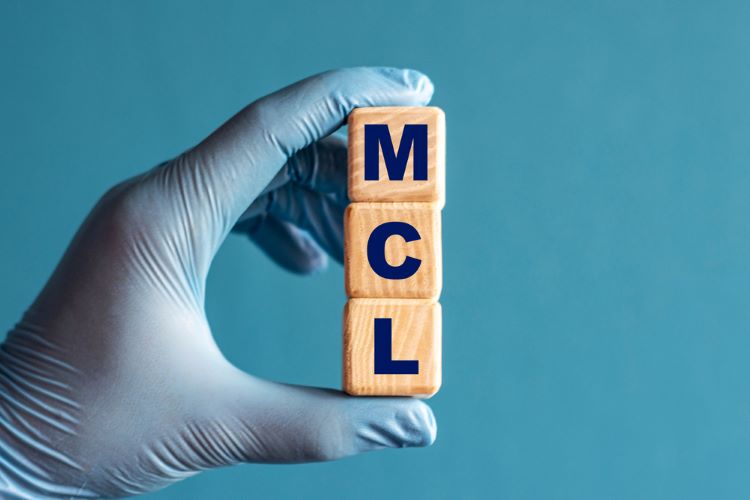Combination treatment could provide new standard-of-care for aggressive lymphoma
Posted: 3 May 2024 | Catherine Eckford (European Pharmaceutical Review) | No comments yet
AstraZeneca has released new clinical data demonstrating the first BTK inhibitor to show a favourable trend in overall survival versus standard-of-care chemoimmunotherapy in adults with untreated mantle cell lymphoma (MCL).


An interim analysis of a Phase III trial of Calquence (acalabrutinib) plus chemoimmunotherapy has revealed positive progression-free survival outcomes for adults with untreated mantle cell lymphoma.
AstraZeneca’s ECHO Phase III trial evaluated acalabrutinib in combination with standard-of-care chemoimmunotherapy, bendamustine and rituximab. Calquence (acalabrutinib) is a next-generation, Bruton’s tyrosine kinase (BTK) inhibitor.
Based on the high-level data, using Calquence in the first-line setting “significantly delays disease progression and, for the first time, shows potential to extend survival. The improvement in progression-free survival together with the differentiated safety profile of Calquence are both important as we strive to transform outcomes earlier in the course of disease treatment,” Susan Galbraith, Executive Vice President, Oncology R&D, AstraZeneca stated.
“These positive progression-free survival results from the ECHO Phase III trial could provide a new standard of care for patients with mantle cell lymphoma”
“These positive progression-free survival results from the ECHO Phase III trial could provide a new standard of care for patients with mantle cell lymphoma. Incorporating Calquence into the first-line mantle cell lymphoma setting would give many more patients the opportunity to benefit from the robust efficacy and strong safety profile we’ve seen with this medicine,” shared Dr Michael Wang, Puddin Clarke Endowed Professor, Director of Mantle Cell Lymphoma Program of Excellence, Co-Director of Clinical Trials at MD Anderson Cancer Center in Houston, US and principal investigator in the trial.
More about Calquence
While a trend in the secondary endpoint of overall survival in patients with mantle cell lymphoma was noted with this treatment combination, the data was not mature at the time of this analysis to draw conclusions, the company concluded.
This new results from the interim analysis will be presented at an upcoming medical meeting, AstraZeneca confirmed.
Calquence is currently being investigated as a monotherapy and in combination for multiple B-cell blood cancers. This include chronic lymphocytic leukaemia and diffuse large B-cell lymphoma. AstraZeneca stated that Calquence is approved for chronic lymphocytic leukaemia and small lymphocytic lymphoma in the US. In the EU, the treatment is authorised for chronic lymphocytic leukaemia as well as other countries.
Related topics
Anti-Cancer Therapeutics, Clinical Development, Clinical Trials, Drug Development, Drug Safety, Research & Development (R&D), Therapeutics
Related organisations
Related drugs
bendamustine, Calquence (acalabrutinib), chemotherapy, Immunotherapy, rituximab









